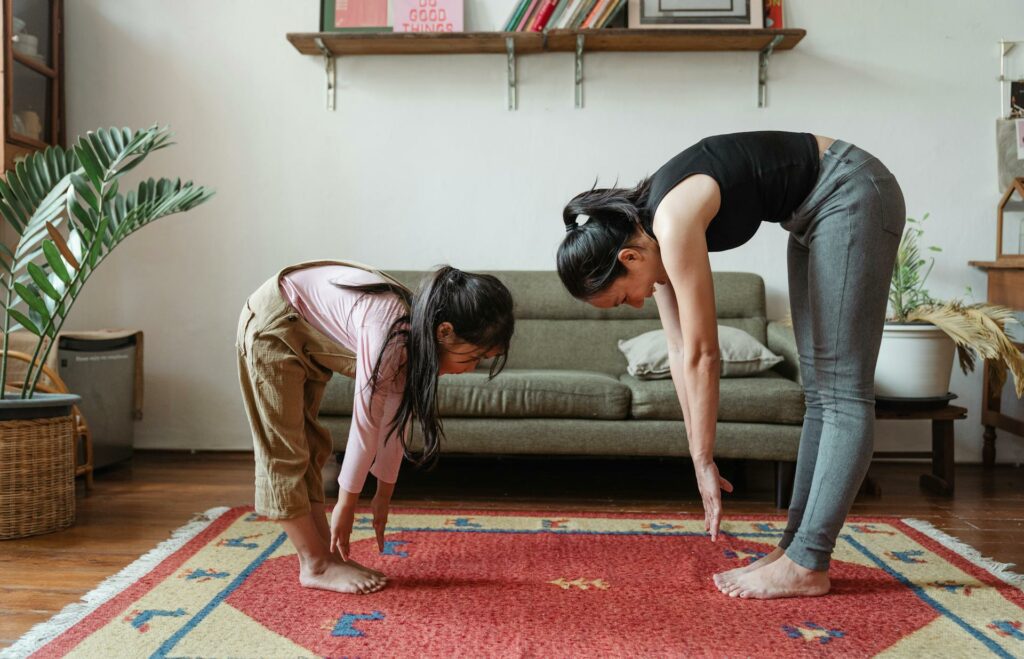In a world saturated with media and societal standards, body image has become a significant concern, even for children. A positive body image can have profound effects on a child’s mental, emotional, and physical wellbeing. This blog will explore what body image is, the benefits of cultivating a positive body image in children, and how parents can help build and nurture this positivity.
What is Body Image?
Body image refers to how individuals perceive their physical appearance and how they feel about and within their own bodies. For children, body image is shaped by a variety of factors, including family, friends, media, and societal standards.
Benefits of a Positive Body Image for Children
- Improved Self-esteem: Children with a positive body image tend to have higher self-esteem. They feel more confident in themselves and their abilities, which can lead to greater success in school, social situations, and extracurricular activities.
- Better Mental Health: A positive body image is linked to better mental health. Children who feel good about their bodies are less likely to experience anxiety, depression, low self-esteem, and eating disorders. They are more likely to develop a healthy relationship with food and exercise.
- Enhanced Physical Health: When children feel positive about their bodies, they are more likely to engage in healthy behaviours. This includes regular physical activity, balanced eating habits, and proper self-care routines, leading to overall better physical health.
- Resilience Against Peer Pressure: Children with a positive body image are better equipped to handle peer pressure and negative influences. They are less likely to be swayed by unrealistic beauty standards and are more likely to stand up for themselves and others.
- Healthy Social Relationships: Positive body image fosters healthy social interactions. Children who feel good about themselves are more likely to form positive relationships with their peers, which is crucial for social development and emotional wellbeing.
How to Help Build a Positive Body Image in Children
- Model Positive Behaviour: Children learn by observing. Parents should model positive behaviour by speaking kindly about their own bodies and others. Avoid making negative comments about weight, shape, or appearance.
- Encourage Healthy Habits: Promote a balanced lifestyle that includes regular physical activity, nutritious eating, and sufficient rest. Emphasize the importance of health over appearance.
- Limit Exposure to Negative Media: Be mindful of the media your children consume. Encourage them to engage with content that promotes diversity and body positivity. Discuss how the media often portrays unrealistic body standards.
- Promote Self-Compassion: Teach children to be kind to themselves. Encourage them to focus on their strengths and what their bodies can do rather than how they look.
- Open Communication: Foster an environment where children feel comfortable discussing their feelings about their bodies. Be supportive and listen to their concerns without judgement.
- Celebrate Diversity: Expose children to diverse body types, cultures, and abilities. Highlight the beauty in differences and teach them that there is no single standard of beauty.
Conclusion
Cultivating a positive body image in children is essential for their overall wellbeing. It leads to improved self-esteem, better mental and physical health, resilience against peer pressure, and healthier social relationships. Parents play a crucial role in shaping their children’s body image by modelling positive behaviour, encouraging healthy habits, limiting exposure to negative media, promoting self-compassion, maintaining open communication, and celebrating diversity.
At Open Minds Campus, we understand the importance of a positive body image for children. This is why our school has a strong focus on student mental health and physical activity. We also have a zero-tolerance policy for bullying in the school. As we strive to create the ideal learning environment for our students.



